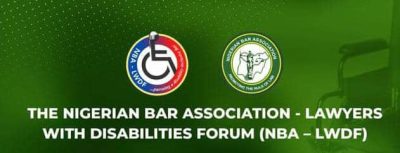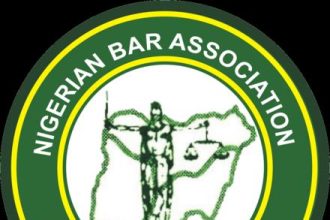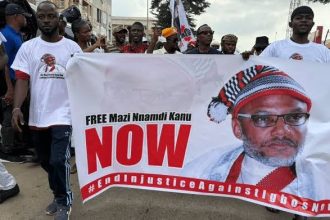THEME: AMPLIFYING THE LEADERSHIP OF PERSONS WITH DISABILITIES FOR AN INCLUSIVE AND SUSTAINABLE FUTURE
As we mark this year’s International Day of Persons with Disabilities, we are called to reflect on a powerful and timely theme: “Amplifying the Leadership of Persons with Disabilities for an Inclusive and Sustainable Future.”
This theme is not just a slogan; it is a call to action for every one of us. It is a reminder that inclusion is not charity—it is justice. Amplifying the voices of persons with disabilities (PWDs) in leadership is not optional—it is essential if we are serious about building a society that values equity, progress, and sustainability.

Why Amplifying Leadership Matters?
Let us pause and consider: what does leadership mean? Leadership is about representation, responsibility, and the power to shape decisions that affect lives. When PWDs take on leadership roles, they bring unique perspectives born from resilience, creativity, and firsthand experience of overcoming challenges to the table and thus shape policies that in the long run will positively affect them.
International Day of Persons with Disabilities
Nigeria is home to an estimated 27 million persons with disabilities. They are mothers, fathers, children, students, professionals, and leaders. Yet, too often, their voices are sidelined in conversations about development. This must change. We cannot build a sustainable future without including the talents and ideas of every citizen, including those with disabilities.
CURRENT REALITIES IN NIGERIA
In Nigeria, we have taken important steps forward. The Discrimination Against Persons with Disabilities (Prohibition) Act, 2018 is a landmark achievement (This Act has been domesticated by some States while we await others to follow suit). However, policies on paper must translate to actions in practice. Too many PWDs still face barriers to education, employment, and leadership opportunities.
Consider the state of accessibility in public buildings, (more than a year after the moratorium on redesigning of public buildings to make them accessible, nothing has been done. Government is the worst culprit as most government properties are still inaccessible for persons with disabilities) the lack of assistive technology in schools, or the underrepresentation of PWDs in decision-making spaces. These barriers are not just inconveniences—they are injustices that limit the potential of millions of citizens.

A VISION FOR INCLUSIVE LEADERSHIP
Imagine a Nigeria where a young girl with visual impairment grows up to become a policymaker who champions disability rights. Picture a workplace where persons with physical disabilities are not just employees but permanent secretaries, directors, managers and CEOs. Envision a society where PWDs take the lead in addressing national challenges, from climate change to economic development.
This is not a dream—it is a goal within our reach only if we create the space for persons with disabilities to thrive.
PRACTICAL STEPS TOWARD INCLUSIVE LEADERSHIP
To realize this vision, we must take concrete steps:
- Education as a Foundation: Government and policymakers must invest in inclusive education systems that provide equal opportunities for PWDs to learn and grow. I am not advocating for separate schools for children with disabilities. No! I am advocating for schools where children with disabilities learn alongside those without disabilities thereby building well-rounded or molded minds. Accessible classrooms, adaptive learning tools, and teacher training are critical.
- Enforcement of Existing Laws: The Disability Act must be fully implemented and enforced. This includes penalties for discrimination and incentives for inclusive practices. States that are yet to domesticate the law must be made to do so only then can a State proclaim that it serves the interest of all its citizens.
- Leadership Development Programs: Let us create platforms where persons with disabilities can be trained, mentored, and supported to step into leadership roles.
- Community Engagement: The public must be part of this journey. We need awareness campaigns to challenge stereotypes and build an inclusive culture where everyone feels valued. Religious organisations must stop prying on the vulnerability of persons with disabilities in the community. They are not objects of pity, manipulation etc. They are humans with rights and obligations.
- Partnerships for Progress: The private sector, civil society, and international organizations must collaborate to fund and support initiatives that empower PWDs.
CALL TO ACTION
To the government and policymakers, you have the power to shape policies that transform lives. Commit to creating a Nigeria where no one is left behind.
To the disability community: your voices are your strength. Speak up, take up leadership roles, and continue to inspire others.
To the public: inclusion begins with each of us. Advocate for accessibility, respect diversity, and support efforts to amplify the leadership of persons with disabilities.
CONCLUSION
The path to an inclusive and sustainable future is not easy, but it is necessary. Together, we can build a nation where every person, regardless of ability, has the opportunity to lead and thrive.
Let us be inspired and determined to take action. Because when we amplify the leadership of persons with disabilities, we amplify the potential of our nation and take it to where it ought to be.
Patience Nkeonyeasua Etumudon Ms
Chairperson, NBA Lawyers with Disabilities Forum.









